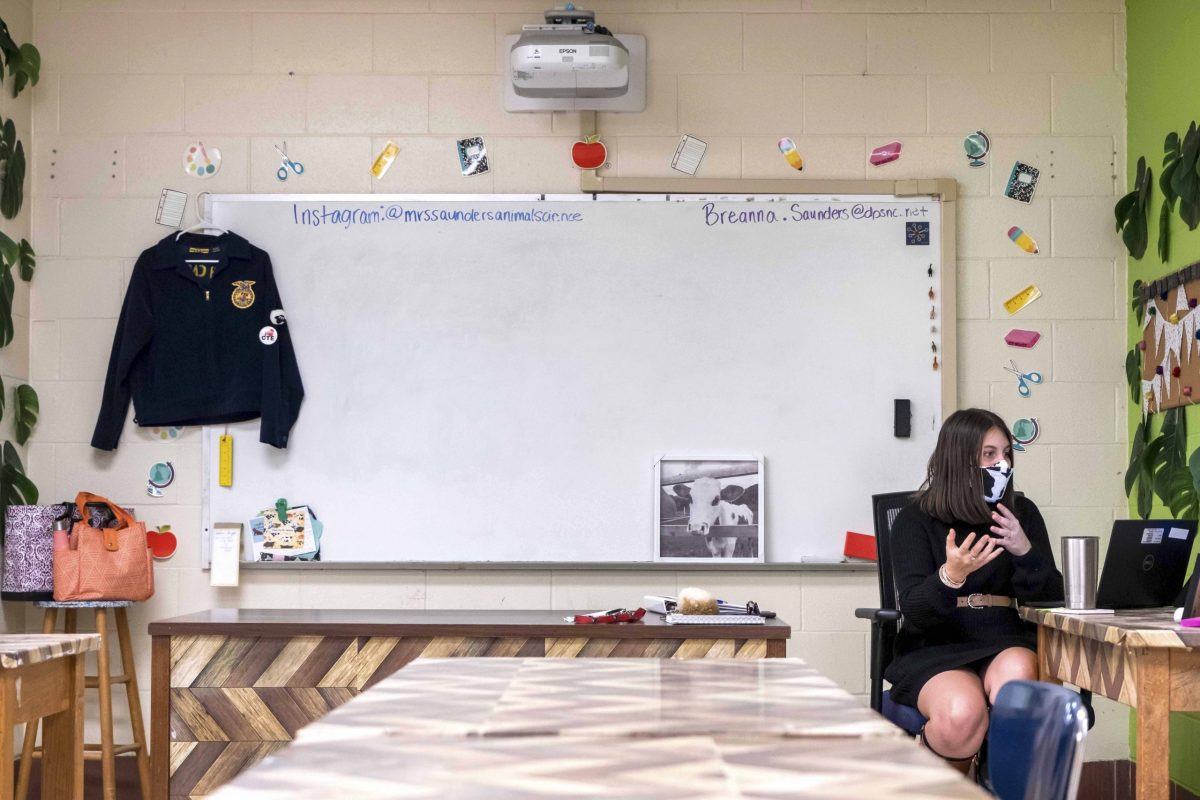Durham teachers should have a chance to receive COVID-19 vaccines before they are asked to return to school, two school board members said this week after Gov. Roy Cooper urged school officials to reopen classrooms for in-person instruction.
“At this time we’re still on the trajectory of continuing to stay remote,” Mike Lee, vice chair of the Durham Public Schools board, said Wednesday. “It’s important that if we are asking our teachers to go back to teach our students, teachers should be put at the forefront of the vaccinations, so that they can have some assurance that they are safe.”
In a letter Tuesday to local school board members and superintendents across the state, Cooper said recent research shows that schools can reopen safely when they follow COVID-19 safety protocols. A Jan. 26 CDC report cited a study of 17 rural K-12 schools in Wisconsin, which found that only seven out of 191 coronavirus cases were the result of in-school transmission.
“In-person learning is fundamental to children’s development and well-being,” Cooper wrote. “Our public schools provide academic guidance, social and emotional supports, reliable meals, and opportunities for physical activity. Further, there are growing harms to children who are relying solely on remote instruction, including negative impacts on academic and mental health and food insecurity.”
Cooper, a Democrat, was not alone in pushing school boards to get students back into their classrooms. Catherine Truitt, the Republican state superintendent of public instruction, co-signed Cooper’s letter and joined him to make the case at a press conference.
While Cooper and Truitt said they “strongly recommend” that local school boards provide in-person instruction, the Republican-led Senate gave preliminary approval Thursday to a bill that would require schools to do so. If the legislation receives final approval next week, it will go to the House for consideration.

Infection rate too high
DPS spokesman Chip Sudderth said administrators are studying the Senate legislation and Cooper’s recommendation, and have not decided whether to recommend changes. Lee said the DPS board will consider Cooper’s letter at its Feb. 11 meeting.
Most North Carolina school systems are providing in-classroom instruction now for at least some students, or have announced plans to do so by mid-March. The DPS board voted Jan. 7 to continue with remote learning for the rest of the 2020-2021 school year. Board members said then that they didn’t want to consider reopening schools until Durham County’s coronavirus infection rate — the percent of public test results that come back positive — falls below 4% for a two-week period. The county’s infection rate stands this week at 7.9%.
Board member Natalie Beyer said Tuesday that all teachers and staff should have the option to be vaccinated before returning to the classroom. DPS employs nearly 6,000 people. School board members have been told that school staff members are not likely to receive COVID-19 vaccinations until April, she said.
“Student and staff safety has to be paramount as we work on the incredibly complex logistics of reopening,” Beyer said. “I know that [online instruction] is not equivalent to an in-person experience. But with the vaccine so close, it seems even more important for our state leaders to work with the federal government to rapidly accelerate the vaccinations of teachers and other frontline workers.”

Happi Adams, an English teacher at Jordan High School, said teachers would rather teach in person but have insisted on online learning because of safety concerns.
“Instead of legislating when we go back to school, I would like for our legislators to push measures that address our COVID safety concerns — provide funding to improve ventilation in buildings, purchase appropriate amounts of P.P.E., and speed up the distribution of vaccines for teachers. This is what will enable us to teach in-person safely,” Adams said.
Although teaching virtually is not ideal compared to in-person instruction, she said, it’s better than the inconsistency of switching back and forth between in-person, hybrid and virtual learning.
“Consistency and predictability are key to quality instruction,” Adams said. “By making the decision to stay [online] through June, we have avoided the chaotic back-and-forth that many districts have experienced and eased the anxiety that comes from uncertainty. Teachers and schools have been able to focus on improving virtual learning.”
Cooper said local school leaders should follow safety protocols outlined in the state’s Strong Schools Public Health Toolkit, which describes measures including adequate community testing, PPE, disinfecting, masking and more.
DPS board member Matt Sears said state leaders should let Durham and other local school boards decide whether in-classroom instruction is safe.
“I was glad to hear Gov. Cooper talk about local control and local decision-making,” Sears said. “If the legislation that comes forward does not include that, my hope is that he would veto that legislation.”
9th Street Journal reporter Kathleen Hobson can be reached at kathleen.hobson@duke.edu
At top: Animal science teacher Breanna Saunders leading class in her empty classroom this week at Jordan High School. Photo by Sho Hatakeyama

